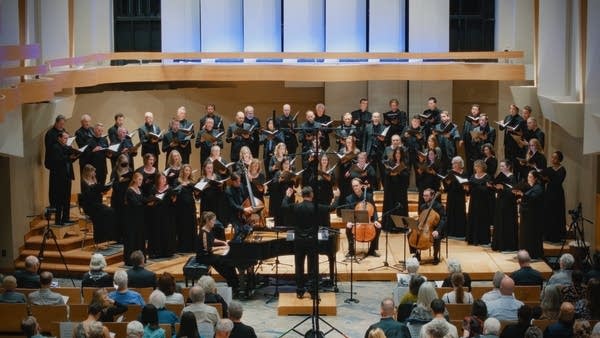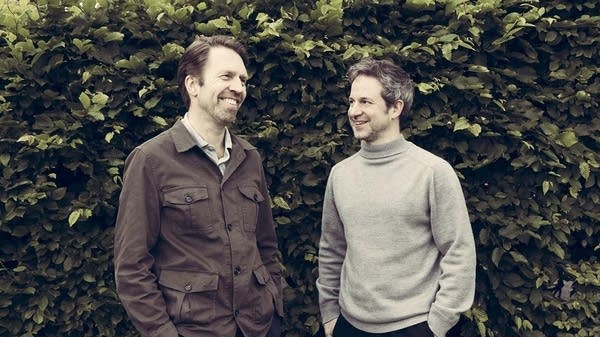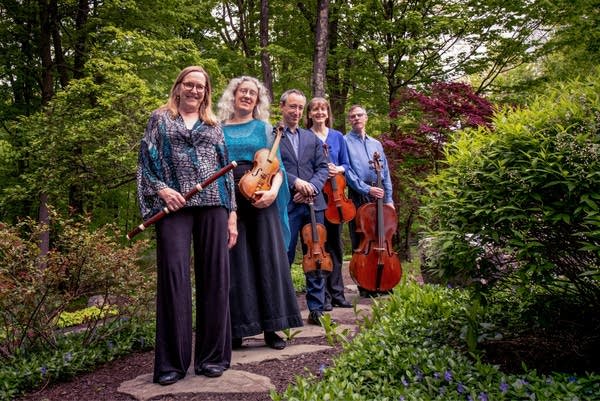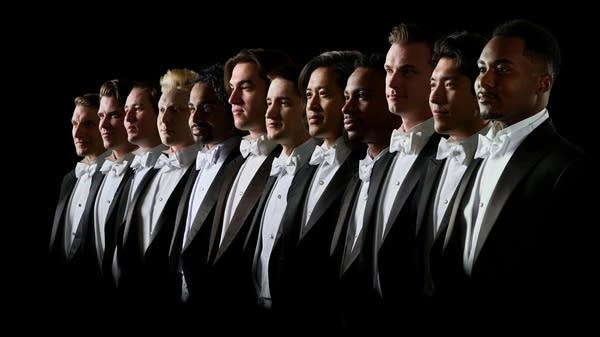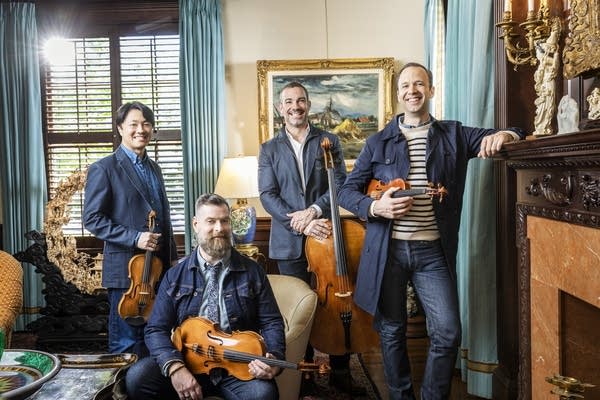
Cantus - Song of a Czech (Cantus CTS 1213)
The nine members of the all-male vocal ensemble Cantus are always in search of new repertoire. Most recently, their sojourn found them exploring the music of two famous 19th-century composers of what is now the Czech Republic. "It took us about four months to put the album together," says baritone Adam Reinwald. "We started researching maybe two months ahead of time, actually getting the music. And we contacted choral conductors in the Czech Republic and they sent us all this music, the vast majority of which is not available here in the U.S. It's just been a fascinating project and great music to dig into, and it's been interesting to work on the language." Reinwald is talking about Song of a Czech, the 16th recording by Cantus, which features works for men's voices by Antonin Dvořák and Leoš Janáček.
Dvořák and Janáček were friends and colleagues, each inspiring and supporting the other. Because Dvořák was 15 years older, Adam Reinwald says early on Janáček saw Dvořák as a mentor. "He wrote to Dvořák a number of times to say, 'This is what I'm thinking about writing, do you have any thoughts on it?' And indeed sent him four pieces, four part songs for male voices and dedicated them to Dvořák. And we have, still surviving, those letters, that they wrote back and forth. And in particular, the letter that Dvořák wrote to Janáček talking about these four pieces and how they had a Czech national spirit to them and they moved the art of male part-song writing forward, even though he didn't quite agree with Janáček's harmony and choice of harmonic palette."
Both composers may have taken a slightly different approach, yet Cantus tenor Gary Ruschman says both were tapping directly into their Czech culture. "And that comes through in the stories that are told through the songs," Ruschman says. "But it also comes from their individual takes on that basically Moravian, sort of Bohemian sound that both of them heard but then put it through their own filter. Dvořák is definitely more conservative, maybe old-school. And Janáček wanted to push. And his music takes the subject matter maybe a little bit more intensely. Dvořák seems to be a more heart music to me. And the Janáček seems a little bit more brain."
One way in which Dvořák and Janáček were similar in their writing for men's chorus was through their use of Czech folk melodies. While they didn't quote these melodies directly, the Czech spirit was very much alive, say Reinwald and Ruschman. "'Song of the Czech' by Dvořák, it's introspective nationalism," Ruschman explains. "So unlike the bombast and the rockets' red glare that we tend to associate with patriotism here, this is, 'What does it really mean in my soul to be Czech, to be Bohemian?' And you can hear that right away from the main melody but then a middle section that is quiet and introspective and very intense.
"Another example would be a song called 'The Fiddler,'" Ruschman continues, "which also has a folk spirit to it. And the character of a fiddler who might be a little on the arrogant side, but who is a showman, really strikes through in the music."
In order to pull off these Czech songs as authentically as possible, the ensemble hired a language coach, Dr. Timothy Cheek, from the University of Michigan. Tenor Paul Rudoi says it was challenging to learn the subtleties of the language. "It was a difficult language to learn," he says. "But after a while, we started to get used to the little nuances in the language. But there are some really complicated consonants that took us a while to learn. There's this one particular consonant where it can be voiced or unvoiced. But, you have to roll your tongue while you also say an 's,' and it's fast, too. It's in the context of a word. So you'll say something and then move on right away."
Gary Ruschman says once they started singing the songs of Janáček, the music got into their ears very quickly. "Once we got the language down, we tended to sing the Janáček with more feeling, more passion, because it was more idiomatic and it made more sense with how the syllables lined up," Ruschman says. "It was really fascinating to see both of these musics take shape over time."
Rudoi says there is one piece by Janáček that demonstrates that well. "It's [called] 'The Jealous Man'," he says, "and it's incredible because it's so operatic. It's written in a style that's very out there. It seems very different from the rest of the album. But really, what you're getting at is, there's this sparseness that comes from both the text and the musical lines he chose to set. It's a really sparse piece, based on two jealous lovers. So it's...it's incredible. But the way that the lines are written, it's so singable...it's scarily singable. It's pretty cool."
The nine members of Cantus get pretty excited when they discover new repertoire for men's choir. I think you'll find their enthusiasm for the music of Dvořák and Janáček on their latest recording, Song of a Czech, is quite contagious.
WEB BONUS: Download a free track from this new album — Cantus performs Antonin Dvořák's "Piseň Čecha (Song Of A Czech)" from the new recording Song of a Czech: Dvořák and Janáček for Men's Voices.
Love the music?
Show your support by making a gift to YourClassical.
Each day, we’re here for you with thoughtful streams that set the tone for your day – not to mention the stories and programs that inspire you to new discovery and help you explore the music you love.
YourClassical is available for free, because we are listener-supported public media. Take a moment to make your gift today.
Your Donation
About New Classical Tracks®
Host Julie Amacher provides an in-depth exploration of a new classical music release each week.
Subscribe on Apple Podcasts, TuneIn, Radio Public, or RSS.



